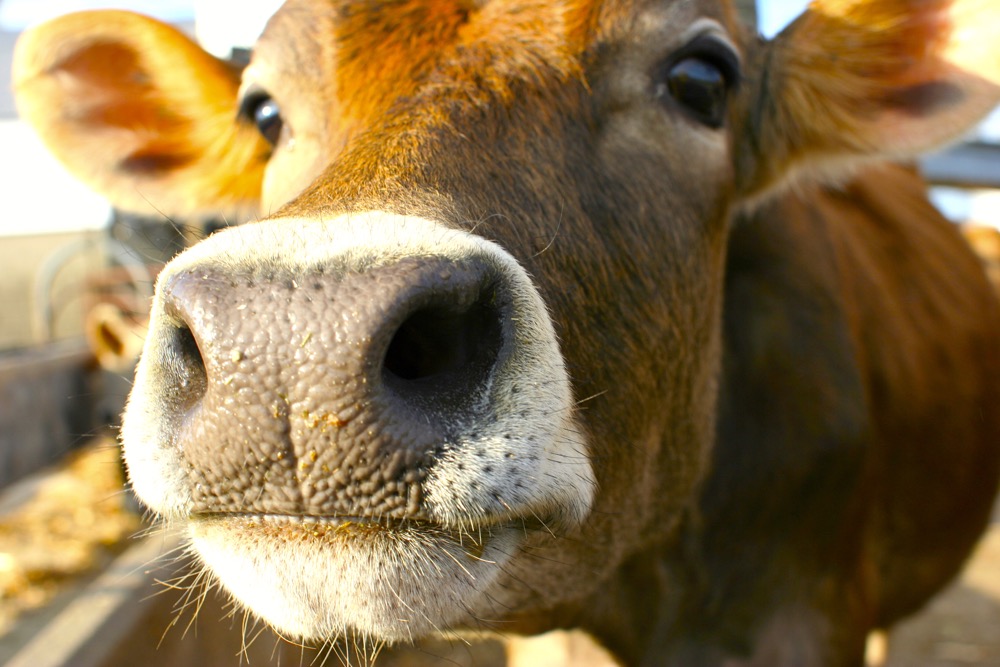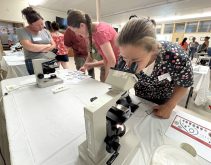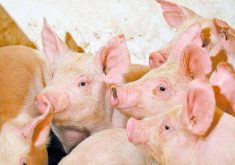For the first time in 30 years, the province plans to update the Veterinarians Act, which Dr. Glen Yates hopes will recognize telemedicine as a necessary tool.
Yates recently founded VETSon, an app to connect underserviced farms to veterinary care. The Ontario Ministry of Agriculture, Food and Rural Affairs announced Nov. 21 that it was seeking public input on the act. The first phase of the province’s call for feedback will address the scope of practice for veterinary medicine, such as procedures and services, and who should be permitted to perform them.
“The Ontario government committing to opening the Veterinarians Act is a huge step forward for the OAVT’s legislative reform efforts,” said Kirsti Clarida, a Registered Veterinary Technician (RVT) and Ontario Association of Veterinary Technicians (OAVT) board of director president, in a release.
Read Also

Dissolving eartags could make pig traceability easier
A dissolving eartag for market hogs, called Clean Trace could reduce processing challenges and enable more individual management of pigs.
OAVT has lobbied for years to get RVTs distinguished from lay staff because the current law limits an RVT’s scope of practice.
“We now have an exciting opportunity to recognize and enable RVTs to be better utilized to reflect the full extent of their education and training and shape a future for veterinary medicine that ensures Ontarians have timely and efficient access to animal health care,” said Clarida.
[RELATED] Province seeking input on modernizing Veterinarians Act
The consultation results are expected to improve accountability and transparency and align the Ontario veterinary profession with other self-governing regulated professions in the province.
Jan Robinson, registrar and CEO of the College of Veterinarians of Ontario, said the College conducted extensive consultations in 2018 and made recommendations to modernize the Veterinarians Act. It released Achieving a Modern Approach to the Regulation of Veterinary Medicine in Ontario, which outlined 19 recommendations for the province to consider. The report is available for download from its website.
Recommendations include:
- Regulating veterinary technicians.
- More streamlined management for investigation and resolutions.
- A mandatory quality assurance program.
- Permitting immediate interim suspensions, emergency investigations in high-risk circumstances, and increasing information on the public register, including posting hearing notices.
“The College, along with the Ontario Association of Veterinary Technicians and the Ontario Veterinary Medical Association, continue to work collaboratively on the modernization of the regulation of veterinary medicine in Ontario to strengthen public protection and more accurately reflect current veterinary practice,” said Robinson.
Establishing more explicit roles for RVTs within the veterinary medicine system, which acknowledges their skill set and importance within a team, is a key area.
“The aim is to support both veterinarians and veterinary technicians to use their full skill sets effectively and efficiently in order to improve access to animal care,” she said.
“The current Veterinarians Act is an exclusive scope of practice model of regulation meaning no one other than a veterinarian may practice veterinary medicine unless under the delegation and supervision of a veterinarian.”













